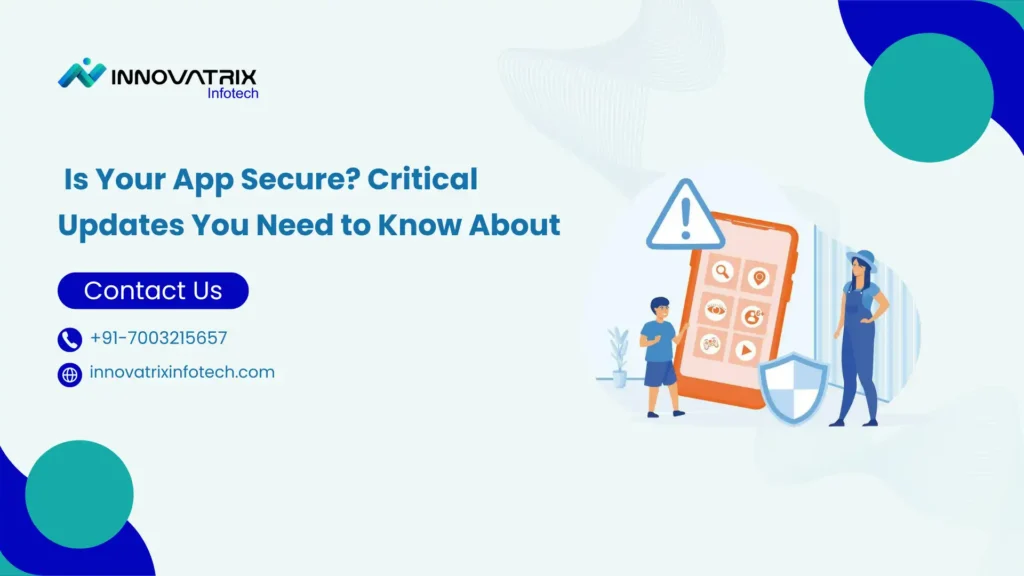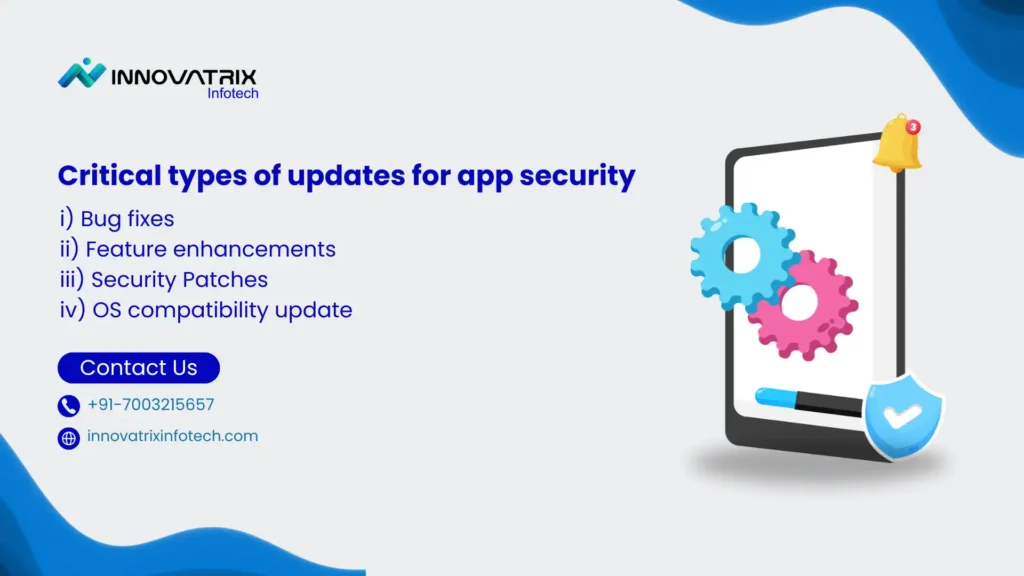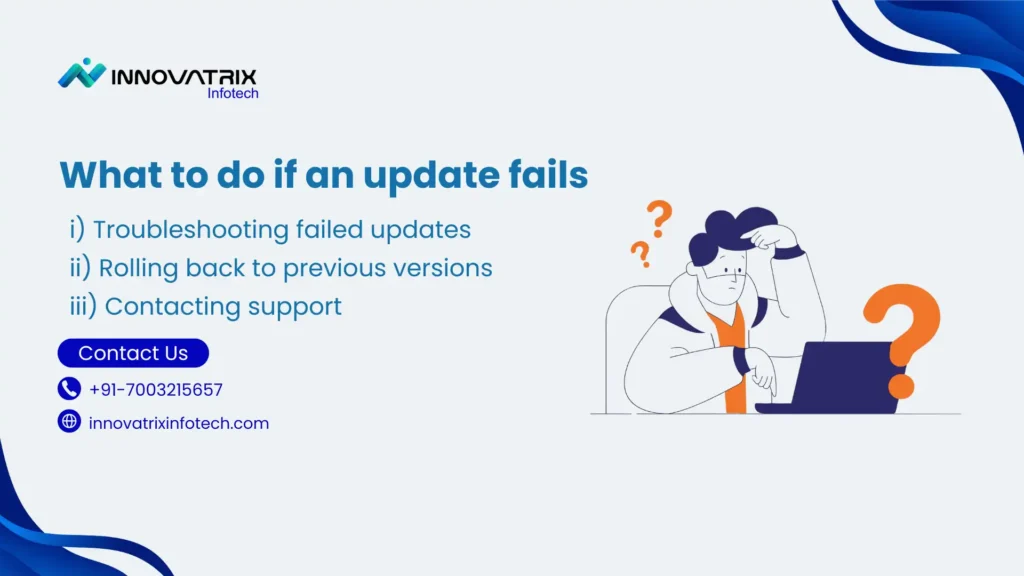Critical app security Updates You Need to Know About. Is Your App Secure?

Critical app security Updates You Need to Know About. Is Your App Secure?
Smartphone immunity is the cornerstone of a healthy digital life. The latest apps are silver pills designed to enhance the integrity of apps.
Are you sure that you are not being watched by phishers? Can you write a note that your app is not exchanging data with a third person? Phishers are rapidly changing their techniques to violate sensitive information for their own benefit via mobile apps. The conducive digital landscape to protect mobile apps revolves around multi-factor authentication, fixing patches, and performance monitoring.
Understanding the importance of app security
1) The growing threat landscape
Cyber threats are increasing with the rise in the usability of mobile apps. The individual is unsafe in the digital world; from booking flights to ordering food, security threats exist. Malware not only disrupts privacy but also the financial sovereignty of the individual. Hence, there is an urgent need to implement app security solutions in the digital landscape.
2) The role of app updates in security
An escalation in cyber threats has led to rapid advancements in in-app updates for security. The bridging of security gaps is enabled by following the best app security practices with technical viability. It helps to reduce vulnerabilities, patch security issues, and make bug fixes.
3) Consequences of ignoring updates
The repercussions of ignoring mobile app updates have been deeply impactful in recent times. The lack of regular updates can result in the worst consequences, such as financial loss, reputational damage, legal troubles, etc. For example, in 2021, the Log4j library was attacked by malware, which disrupted potential apps due to the unpatched software of outdated apps.
Critical types of updates for app security

There are multiple updates to protect mobile apps from cyberattacks. Techniques and best app security practices are being followed to enhance the credibility of apps. Here are the various types of updates for app security:
1) Security Patches
Security patches are instant software embedded to secure your app from functionality issues. It aims to identify bugs and, whenever a situation arises, update the app and add new features according to the device’s requirements. Regular incorporation of security patches for app encryption methods is necessary to fight against emerging vulnerabilities.
2) Bug fixes
Fixing bugs resolves the problems in the working of mobile apps. Errors and performance issues in apps are promptly addressed by bug fixing. A minor bug can become an entry point for malware. The framework to protect mobile apps revolves around bug fixes and regular monitoring of bugs.
3) Feature enhancements
The addition of top app security features to mobile apps will improve efficiency. For instance, when developers integrate mobile apps with two-factor authentication, it will provide an extra layer of protection from cyberattacks. The upgrade of app encryption methods will empower the integrity of apps and make it difficult for cyber attackers to access sensitive information easily.
4) OS compatibility updates
The phenomenon of ensuring that apps are secured is based on the best app security practices followed by the developers. Users must follow the app security guide to ensure the security of their app.
How to ensure your apps stay secure
The phenomenon of ensuring that apps are secured is based on the best app security practices followed by the developers. Users must follow the app security guide to ensure the security of their app.
1) Automatic vs. manual updates
The process of automatic mobile app performance updates is done without human intervention. This will ensure that the mobile apps do not miss critical updates. Also, this will apply to security patches at regular intervals. However, manual updates allow the user to decide the update timing and specifications. For manual updates, individuals have to monitor software updates consistently.
2) Regular update checks
One of the most popular mobile app security tips is to regularly check for updates. By setting reminders and alerts through utility apps, you can enable monitoring of regular update checks. The verification of mobile app updates is necessary to strengthen the performance and viability of the apps.
3) Using security software
There are several techniques and app encryption methods that help protect mobile devices and data from security threats. Robust security features of mobile apps involve 2FA (two-factor authentication), VPN (virtual private networks), biometric security features, etc. The security of the code will empower mobile applications; it ensures that it withstands malware attacks.
4) Backup strategies before updating
The maintenance of quality and reliability of apps is highly dependent on backup frequencies. The storage of data is important for protecting sensitive information incase malware affects the software. This will help to avoid financial and personal loss. Using cloud storage and external storage services will ensure the safety of the apps.
Common misconceptions about app security
1) Updates are optional
Many mobile app users live in the myth that updates are optional, but the top app security features activate the credibility of the app. Updates are primarily used to protect mobile apps from cyber threats and vulnerabilities. Ignoring updates can lower the strength of app encryption and app security solutions across digital platforms.
2) Updates are only about new features
A common misconception people have is that updates are only about new features, but they are also to secure your app from malicious attacks. Many mobile app updates are for improving security, bug fixing, security patches, etc. Thereby, it will bolster the integrity and viability of the apps.
3) Updates can wait
Updates can wait, but personal data or financial loss cannot. Therefore, regular updates are mandatory for safeguarding apps. Delayed updates can increase the chances of vulnerabilities. Phishers primarily target outdated mobile apps; hence, timely updates provide optimal protection to apps.
What to do if an update fails

Here are the mobile app security practices that need to be followed if an update fails.
1) Troubleshooting failed updates
Whenever an update fails, the individual should follow the app security guide to do troubleshooting. Accurate processing of step-by-step instructions is important. This involves restarting the mobile device with a stable internet connection. The individual can clear the cache and check whether there is sufficient storage available or not. After that, you can reinstall the update and get seamless functionality.
2) Rolling back to previous versions
Software update failures are affecting the safety and integrity of the mobile app. The best option to protect mobile apps is to roll back to previous versions. It will avoid data loss and secure the efficiency of the mobile app.
3) Contacting support
If app security solutions like troubleshooting and rolling back to the previous version do not resolve the update, then the user should contact customer care. They will elaborate on the best possible option to tackle update failures.
Future trends in app security

App security is a prerequisite for functional and user-centric mobile apps. Moreover, security testing tools exhibit coral sense, which enhances the viability of devices. Future goals for app security will focus on making mobile apps comprehensively secure and efficient.
1) Emerging threats
The future app security is becoming more risky due to the advent of IoT and voice assistants. The rise in phishing scams is due to artificial intelligence. The exploitation of mobile app security is becoming more frequent due to emerging technologies. Developers can create software that can mitigate vulnerable threats.
2) AI-driven security
Artificial intelligence significantly gives impetus to threat detection and response issues. AI-driven technologies are analyzing patterns and behaviours to predict anomalies and potential attacks. Automatic responses are part of the app’s security testing tools that will early detect cyberattacks.
3) Blockchain for app security
Blockchain app development forms part of app security testing tools that will increase the safety of mobile apps. The enabling of secured financial transactions is done through blockchain technologies. Decentralized authentication is necessary to secure your app across digital platforms.
4) User education
With the continuous evolution of mobile apps cyber threats are increasing, due to which user education has become important. Awareness of cyber attacks is helpful to draw up app security solutions. Proper education about how to secure an app through strong passwords is the need of the hour. Knowledge of phishing attempts and techniques is helpful in preventing data breaches. User education will minimize the chances of malware attacks.
Conclusion
Mobile app updates are the bedrock of the smooth and successful functioning of the app. They help to keep mobile apps in accordance with user experiences and expectations. Regular upgrades to app security solutions help protect mobile apps from cyber attacks. App updates can provide tangible benefits and empower the credibility of mobile apps. However, app security testing tools emphasize the consistent update schedule, maintenance, and competency of mobile apps. Therefore, adapt to security updates and thrive in the digital world without fear.
Bundle up your app security and get your enemies down against your mobile application with Innovatrix Infotech!!

Rishabh Sethia
Rishabh Sethia has experience of 8 fragile years in mobile app development. His core aptitude has guided a bunch of businesses for safe management execution through the mobile application. Knowledge and experience have laid a dynamic path to progression in the field of technology.

At the forefront of innovation, Innovatrix Infotech is a premier software development and technology solutions company headquartered in Kolkata. We deliver transformative results to clients across India by leveraging emerging technologies and the unparalleled expertise of our talented developers.
Contact Us
Subscribe Our Newsletter

Let's Create a Winning Formula for Your Business!
Kickstart your digital transformation today and elevate your business.
Kickstart your digital transformation today and elevate your business.

See a Measurable Return on Your Investment !
-
50+
Projects -
3+ Year's
Experience -
30+ Happy
Clients

